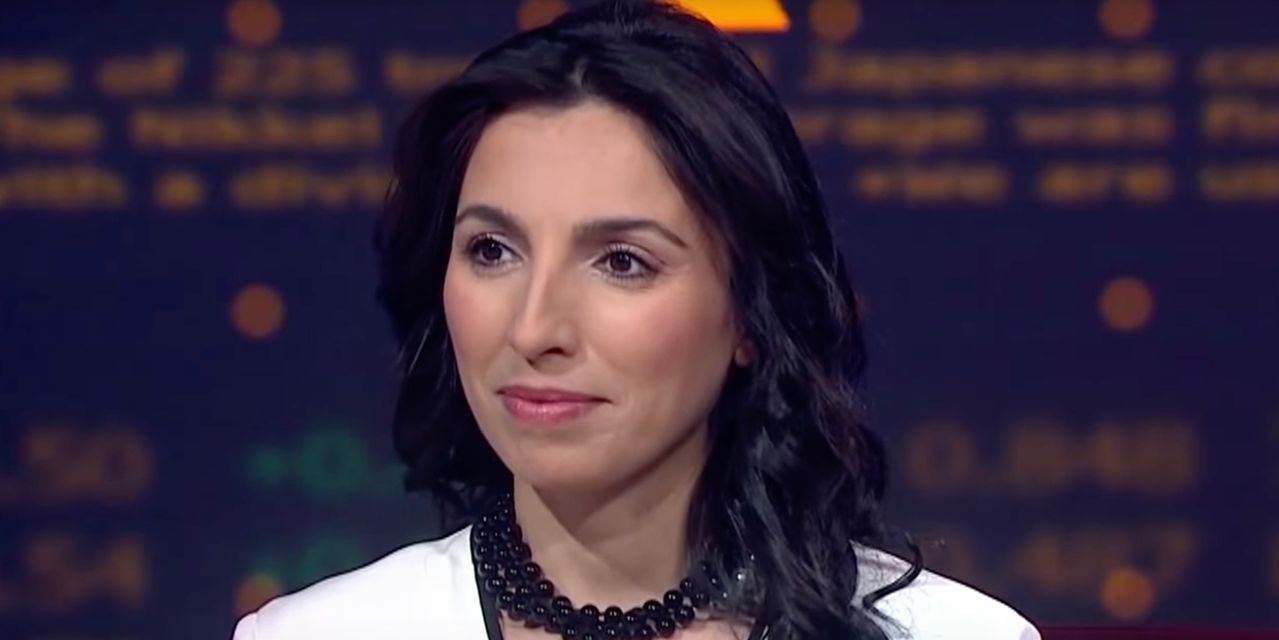The Turkish government has appointed its first first female central bank governor, Hafize Gaye Erkan, a former Goldman Sachs banker who is charged trying to rebuild financial stability and credibility for the country.
Erkan replaces Şahap Kavcıoğlu, who held the position for just over three years and will now head up the country’s Banking Regulation and Supervision Agency, according to a government announcement dated Thursday.
Under Kavcıoğlu, interest rates in Turkey dropped from 19% to the present 8.5%, as he was seen widely yielding to pressure from President President Recep Tayyip Erdoğan, who had an unorthodox view that rate cuts would help ease price pressures.
Instead, rate cuts sent Turkish inflation soaring to 85% by October 2022, sending the lira into a downward spiral. Inflation has since dropped to just over 39%, but remains the highest among all Organization for Economic Cooperation and Development countries. The lira, which was trading at around 8.22 per dollar has since plunged to over 23, as investors in the country have flocked to the stock market to try and shield themselves from high inflation.
A big job ahead
Kavcıoğlu was brought on board in March 2021 after Erdogan fired his predecessor Naci Agbal, who had just hiked interest rates by 2 percentage points to 19%, a full percentage point more than expected. Kavcıoğlu has long been criticized for caving to Erdogan and embracing his unorthodox view of lowering inflation with interest rate cuts.
Erkan brings years of Wall Street banking experience and risk management expertise to the table. According to her LinkedIn profile, she spent seven years working as co-chief executive and co-chief risk officer at First Republic Bank, which was taken over by JPMorgan Chase & Co. in May as the regional bank struggled for survival.
Ahead of that she spent two years as a board member at at luxury jeweler Tiffany & Co. and for nine years, headed up financial group analytics at Goldman Sachs .She has a Ph.D in financial engineering and applied mathematics from Princeton University and completed an advanced management course at Harvard University.
She was named to Crain’s list of Notable Women in Banking and Finance in 2019, and to San Francisco Times’ and Crain New York Business’ 40 Under 40 lists in 2018, according to her LinkedIn profile and Crain.
From Wall Street back to Turkey
Erkan’s most recent post was serving on the board of directors at Marsh McLennan
MMC,
from 2022 to the present, as well as on the advisory board of the Operations Research & Financial Engineering Department at Princeton from 2016 to the present.
Going from the U.S. back to the prestigious job in her home country may be an adjustment. She’s entering an establishment steeped in a culture of pleasing Erdoğan, even as her background and international experience seem “designed to regain credibility in the eyes of foreign investors,” Wolfango Piccoli, co-president at global CEO advisory firm Teneo, told clients in a note.
As the first female, she may find it a challenge to “adapt to Ankara’s working culture, where allegiance and obedience often matter more than merit and knowledge,” he said.
That’s as the lira has never been weaker, having continued to fall to record lows since the late May re-election of Erdoğan, and his recent appointment of respected Finance Minister Mehmet Şimşek, who has promised “rational” policies and vowed to “prioritize macro financial stability.”
As markets absorbed news of the new central bank governor, the lira
USDTRY,
pared some losses, but remained at record lows, trading at 23.373, after a bruising week that saw the currency fall 11% amid reports state banks were no longer intervening to support the currency.
Ipek Ozkardeskaya, senior analyst at Swissquote Bank, said Erkan is expected to try and bring in more conventional monetary policy.
“The latter will require higher interest rates, waning FX interventions, which will first lead to a further lira depreciation to catch up a year-and-a-half coma – an expensive coma – then hopefully stabilize the FX pricing at a market-determined level so that Turkey could again have a monetary policy,” the analyst said.
Until then, investors may see a rough summer, with “waves” of lira selling and another surge in inflation until the currency stabilizes as Turkish banks stop selling dollars.
Solving a credibility problem
Rebuilding the credibility of the Turkey’s Central Bank after years of mismanagement won’t be easy on Erkan, said Piccoli. Erkan needs to start with a fresh monetary policy committee of members with knowledge and expertise, a tough task under Erdogan, he said.
The risk expert also pointed to the fact Kavcıoğlu was named new head of the banking regulator (BDDK), which might be a problem for her going forward.
“Appointing Kavcioglu –- a cheerleader of Erdogan’s ‘new economic model’ — as head of the banking regulator is a powerful reminder that Erdonomics can bite back anytime,” said Piccoli, adding that during Simsek’s previous stint as finance minister, Erdogan also put a loyalist in charge of the BDDK.
“It is worth noting that a shift towards a more rational economic policy set will require the support and cooperation of the BDDK, given the large number of regulations covering credit and foreign exchange that must be removed and/or amended. As Turkey’s domestic banks – private and state-owned – are under close political scrutiny and command, the role of the BDDK in shaping policy should not be underestimated,” said Piccoli.
In some corners of Twitter, eyebrows were raised over the new central bank governor’s stint at First Republic Bank, which failed in the spring amid a banking crisis:
Read the full article here












